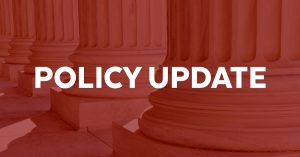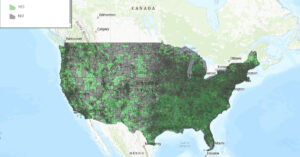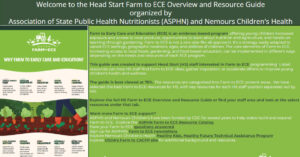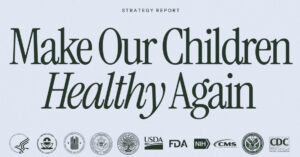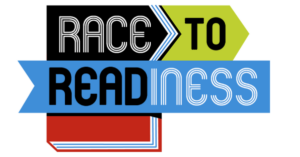Posts Tagged ‘child care’
Quarterly Policy Update: October 2025
In the last few months, there have been many actions by USDA, HHS, and Congress impacting Child Nutrition Programs. Keep reading to see what you’ve missed and stay up to date with CACFP policy!
Read MoreFY26 Area Eligibility Map Updated
Back to Blog Back to Blog FY26 Area Eligibility Map Updated September 29, 2025 USDA announced that the CACFP and SFSP Area Eligibility Mapper has been updated for fiscal year 2026. Why It Matters Census data and school data are the two primary sources that may be used to determine whether a site is area…
Read MoreHead Start Farm to ECE Overview and Resource Guide
Our partners at the Association of State Public Health Nutritionists (ASPHN) and Nemours Children’s Health are pleased to share the Head Start Farm to ECE Overview and Resource Guide.
Read MoreSponsor Spotlight: Maria Rincon of EOAC Head Start
Maria Rincon is the Nutrition Manager for the Economic Opportunities Advancement Corporation (EOAC). Hear how she and her team ensure nutritious meals to over 500 infants and children through their Head Start centers.
Read MoreHHS Invests $61.9 million to Support Nutrition in Head Start
The U.S. Department of Health and Human Services (HHS) announced over $61 million in funding to over 290 Head Start programs to support nutrition services. Recipients will implement their nutrition initiatives over the next year, but this investment will have a long-term impact on Head Start families.
Read MoreFollow and Stretch Brain Builders
There’s one word that likely comes to mind when you think of toddlers: WHY? Why is the sky blue? Why do we brush our teeth? Why do I have to go to sleep? Constantly asking “why?” is a sign your child’s brain is growing! They are curious and want to learn all about the world around them. Vroom can help you make the most of the whys through the Brain Building Basics of Follow and Stretch.
Read MoreGluten-Free Diets
The gluten-free diet has generated a lot of attention in recent years, with some praising its benefits. However, for people who cannot eat gluten due to medical reasons, such as celiac disease or gluten sensitivity, this diet is not a choice but a necessity. Our Partners at the Institute of Child Nutrition defines gluten and how it affects certain individuals, lists foods containing gluten, identifies gluten-free foods, and reviews how to accommodate children who require a gluten-free diet.
Read MoreWhite House Releases Make Our Children Healthy Again Strategy
On September 9, 2025, the White House released the Make Our Children Healthy Again Strategy Report which outlines actions of the executive branch to address the childhood chronic disease crisis.
Read MoreSeptember Virtual Events
Get a rundown on all things happening at NCA this month!
Read MoreRace to Readiness
Our Partners at Read Aloud 15 Minutes launched a “Race to Readiness” campaign. Inspired by race cars and the goal of 500 minutes of reading aloud, this campaign is designed to help prepare kids for a successful future.
Read More
